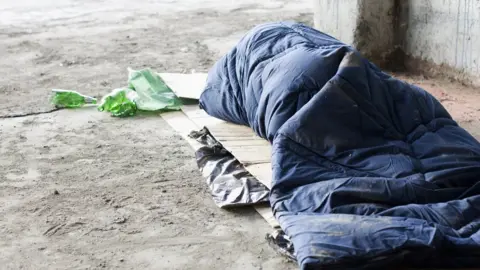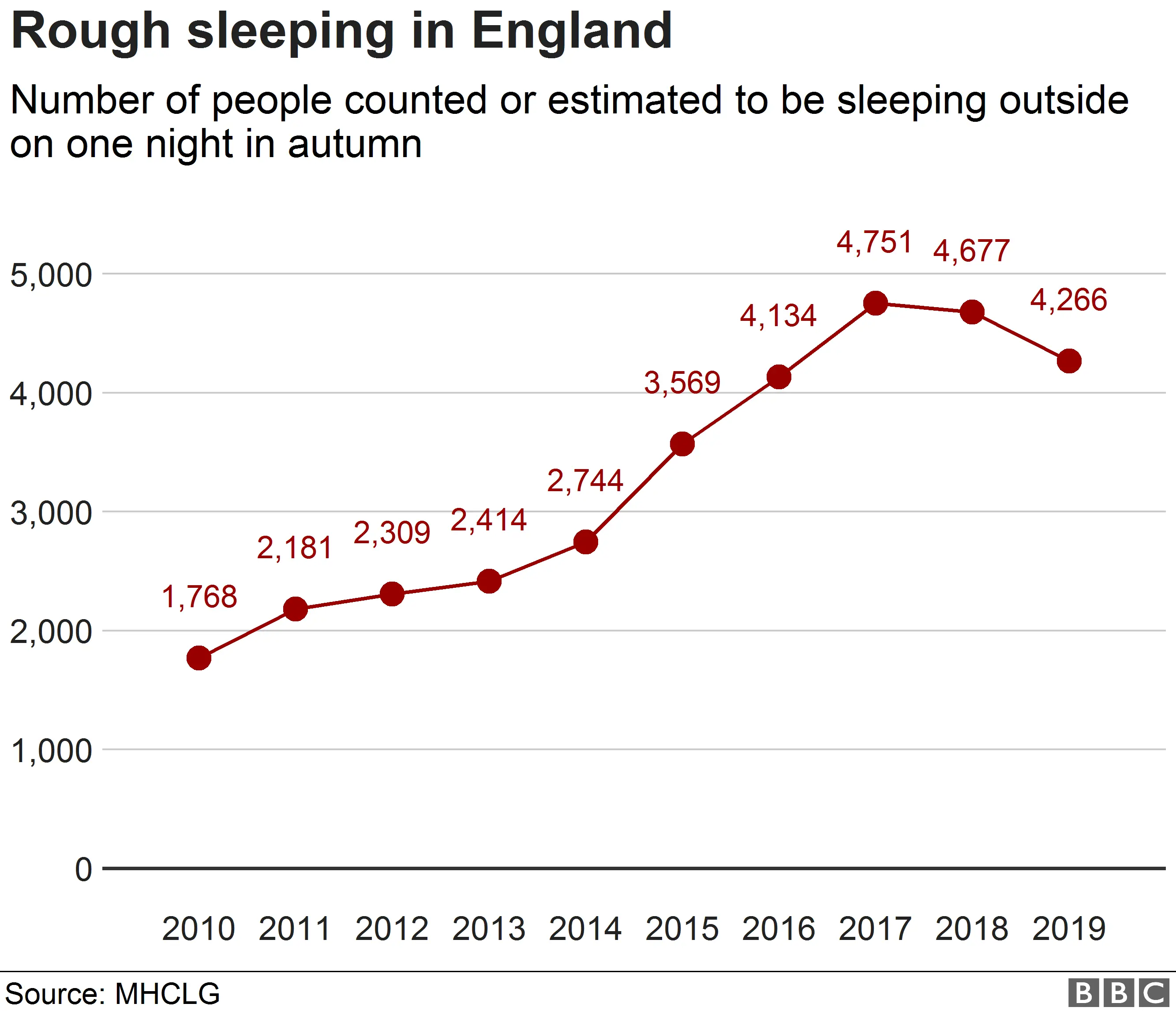Coronavirus: Funding for rough sleepers' emergency scheme to end
 Getty Images
Getty ImagesGovernment funding for an emergency scheme to keep England's rough sleepers off the streets amid the coronavirus pandemic is to end.
Councils were given £3.2m in March to provide emergency shelter for homeless people, with many housed in hotels.
The Manchester Evening News said a leaked report showed ministers had "quietly pulled the plug".
The government said it had given councils £3.2bn since March and urged them to keep supporting rough sleepers.
The "Everyone In" scheme helped to house about 5,400 people.
Homeless charity Crisis described the decision to stop funding it as "completely unacceptable."
Its chief executive, Jon Sparkes, said: "There is still a deadly virus out there and, while it's to be commended that over 5,400 people have been given safe temporary accommodation, the job simply isn't finished."

A spokesman for the Ministry of Housing, Communities and Local Government said: "It is simply wrong and misleading to suggest that we have stopped funding to keep rough sleepers off the street.
"We gave councils an initial payment of £3.2m at the start of the pandemic so they could take immediate action and help rough sleepers off the street.
"We have since given councils a further £3.2bn to deal with the immediate pressures they are facing, including supporting rough sleepers."
Labour leader Keir Starmer said it was "simply wrong to send homeless people back onto the streets," adding "the coronavirus crisis is far from over.
"Right now they need emergency support. But after this crisis we can't forget we all but ended rough sleeping overnight. We can end it for good."

Analysis
Michael Buchanan, BBC Social Affairs Correspondent
This scheme was seen as being hugely successful, almost, as one expert told me, ending rough sleeping overnight.
About 5,400 people had been given temporary accommodation and despite widespread fears about Covid-19's impact on rough sleepers, the "Everyone In" scheme was credited with largely protecting the homeless.
It also allowed healthcare and addiction services in some cases to engage with people who had long refused any help.
The government is keen to highlight it increased funding to help rough sleepers before the pandemic and that just because it's not extending this particular scheme, it remains committed to tackling a problem that has exploded in England since 2010.
But homeless charities will be closely watching what happens next. Why, they ask, end a scheme that was working, that was costing little more than a rounding error in the context of the overall costs of the pandemic? All eyes will now be on Louise Casey.
And while specific funding for England is ending, the governments in Scotland and Wales will continue to support their own rough sleeper schemes.

On Friday, Dame Louise Casey, who is responsible for the government's Covid-19 rough sleeping response taskforce, told Radio 4's PM programme "the money has not run out and isn't running out".
"No-one is going to be tipped out, that's the key thing here, that would be reckless, irresponsible and wrong."
Polly Neate, chief executive of the housing and homelessness charity Shelter, added: "We cannot allow all the progress made or that safety net to be quietly stripped back now with councils left to pick up the pieces on their own."
Dame Louise Casey will "spearhead" the next phase of government support for rough sleepers during the pandemic, the MHCLG spokesperson said.
"While councils continue to provide accommodation to those that need it, it is only responsible that we work with partners to ensure rough sleepers can move into long-term, safe accommodation once the immediate crisis is over."


- A SIMPLE GUIDE: How do I protect myself?
- AVOIDING CONTACT: The rules on self-isolation and exercise
- LOOK-UP TOOL: Check cases in your area
- MAPS AND CHARTS: Visual guide to the outbreak
- VIDEO: The 20-second hand wash

